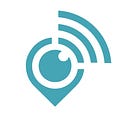Chatbots In Healthcare
Artificial intelligence (AI) is touching every sphere of our lives, especially in the healthcare domain. AI-enabled tools help to simplify patient care and cut unnecessary healthcare costs. As technology is improving and the use of intelligent machines to work and react like humans is already a part of our lives, let’s get a brief idea on the role of AI chatbots in the healthcare sector.
What are Chatbots in healthcare?
A chatbot is a computer program that allows humans to interact with technology. Whenever a patient engages in a conversation with an intelligent conversational machine, we see a healthcare chatbot in the medical field in action. It offers significant opportunities and benefits to the patients as well as the clinicians. A large number of hospitals and related healthcare and nursing centers increasingly utilize online chatbots on their sites to assist the visitors. Many people engage in a conversation with chatbots everyday and find it very convenient in terms of easy access, real-time assistance and cost savings.
The role of Artificial Intelligence
Nobody can deny the impact of Artificial Intelligence in healthcare. The use of AI-enabled tools for better healthcare services is already into the booming stage. Many healthcare providers are already using various types of Artificial Intelligence and AI chatbots are significant here. It helps to provide human-like conversations. Patients love speaking to real-life healthcare professionals and AI makes chatbots sound more human. Chatbots are designed to respond to different queries and machine learning helps in adapting to responses.
Artificial intelligence can neither replace the expertise of medical professionals nor completely take over the patient care but what makes it far-reaching in the medical field is its ability to provide improved efficiency without compromising on the quality.
Benefits of Chatbots in healthcare
- Connects with potential patients visiting sites and provides real-time assistance such as finding out specialists, booking appointments etc.
- Provides real time support 24*7 and addresses patient queries — deep, general and situational questions.
- Guides users to the correct treatment which saves their time.
- Lightens the daily workloads of the clinical teams and eases their burden.
- Improves the quality of healthcare providers by assisting them in more consistent and accurate diagnosis.
- Provides instant help in emergency situations.
- Helps in generating new leads and shares the information to sales.
What are the Key Risks?
No technology is risk free. Though chatbots provide a lot of benefits to the users, it comes with certain disadvantages.
- User reluctance to share their personal information and medical conditions to bots.
- Security threats such as data tampering, spoofing, data theft etc.
- System vulnerabilities to cyber attacks, poor coding and human errors.
Conclusion
Chatbots are smart assistants which are dramatically changing the healthcare sector. They cannot replace doctors but can provide many opportunities to do their job at ease with improved performance quality. Chatbots can be used for delivering more personalized care while cutting down on wait times. They can also reach out to a large number of potential patients and can help in creating new leads.
